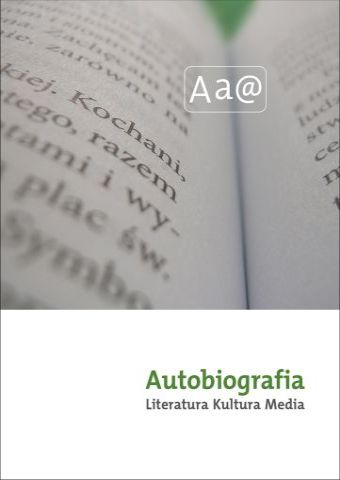






| Authors: |
Karolina
Szymaniak
Uniwersytet Wrocławski |
| Keywords: | Rachel Auerbach archives intimate correspondence letter diary |
| Data publikacji całości: | 2017 |
| Page range: | 25 (57-81) |
| 1. | Auerbach, Rachela. „Indywiduum i indywidualność. Obiektywne warunki oryginalności indywidualnej”.W: Archiwum Ringelbluma. Konspiracyjne Archiwum Getta Warszawy. T. 7: Spuścizny, oprac. Katarzyna Person, 2–100. Warszawa: Żydowski Instytut Historyczny, 2012. |
| 2. | Auerbach, Rachela. „Z ludem pospołu”. Nasze Słowo 14–15 (1946): 13, 15. |
| 3. | Auerbach, Rachela. Warszewer cawoes. Bagegeniszn, aktiwitetn, gojroles 1933–1943. Tel Awiw: Jisroel-Buch, 1974. |
| 4. | Bauer, Yehuda. Problem gender: przypadek Gisi Fleischmann. W: Yehuda Bauer, Przemyśleć Holocaust. Tłum. Jerzy Giebułtowski, Janusz Surewicz, 223–245. Warszawa: ŻIH, 2016. |
| 5. | Ben-Sefer, Ellen. “Sex and the City: Women, Sexuality, and Reproduction in Westerbork Transit Camp”. W: Zygmunt Mazur, Jay T. Lees, Arnold Krammer, Władysław Witalisz, The Legacy of the Holocaust: Women and the Holocaust, 57–72. Kraków: Jagiellonian University Press, 2007. |
| 6. | Bir, Chajele (Helen Beer). „A sztil kecl mit szarfe negl. Wegn Rochl Ojerbachs żurnalizm”. W: Chutszelchesed. Lekowed Chawe Turnianski, red. Israel Bartal, Galit Hasan-Rokem, Claudia Rosenzweig, Ada Rapoport-Albert, Erika Timm, Vicky Shifriss, Jeruszolaim: Merkaz Zalman Szazar, 2013. |
| 7. | Bocheński, Jacek. Przedmowa do I wydania I była miłość w getcie, Marek Edelman, 7–21. Warszawa: Świat Książki, 2009. |
| 8. | Buss, Helen M. „Afterword”. W: Working in Women’s Archives: Researching Women’s Private Literature and Archival Documents, red. Helen M. Buss, Marlene Kadar, 1–5. Waterloo: Wilfrid Laurier Press, 2001. |
| 9. | Cohen, Boaz. „Rachel Auerbach, Yad Vashem, and Israeli Holocaust Memory”. Polin: Studies in Polish Jewry 20 (2008): 197–221. |
| 10. | Cohen, Nathan. „Przyczyny emigracji pisarzy jidysz z Polski (1945–1948)”. Tłum. Magdalena Ruta. W: Nusech Pojln. Studia z dziejów kultury jidysz w powojennej Polsce, red. Magdalena Ruta, 231–246. Kraków–Budapeszt: Austeria, 2008. |
| 11. | Czermińska, Małgorzata. Autobiograficzny trójkąt. Świadectwo, wyznanie, wyzwanie. Kraków: Universitas, 2000. |
| 12. | Dever, Maryanne, Sally Newman, Ann Vickery. The Intimate Archive: Journeys Through Private Papers. Canberra: National Library of Australia, 2009. |
| 13. | Egodokumenty. Tradycje historiograficzne i perspektywy badawcze, red. Waldemar Chorążyczewski, Stanisław Roszak, Arvydas Pacevicius. Toruń: Wydawnictwo Naukowe UMK, 2015. |
| 14. | Friedman-Cohen, Carrie. „Rochl Ojerbach: rosze perakim le-cheker chajeja we-jecirata”. Chuljot 9 (2005): 297–304. |
| 15. | Gal-Ed, Efrat. Niemandssprache. Itzik Manger – ein europäischer Dichter. Berlin: Jüdischer Verlag im Suhrkamp Verlag, 2016. |
| 16. | Grądzka-Rejak, Martyna. Kobieta żydowska w okupowanym Krakowie. Kraków: Wysoki Zamek, 2016. |
| 17. | Horowitz, Sarah R. „Memory and Testimony of Women Survivors of Nazi Genocide”. W: Women of the Word, Jewish Women and Jewish Writing, red. Judith R. Baskin, 258–282. Detroit: Wayne University Press, 1994. |
| 18. | Kadar, Marlene. „Afterword”. W: Working in Women’s Archives: Researching Women’s Private Literature and Archival Documents, red. Helen M. Buss, Marlene Kadar, 115–118. |
| 19. | Waterloo: Wilfrid Kassow, Samuel. Kto napisze naszą historię… Ukryte Archiwum Emanuela Ringelbluma. Tłum. Grażyna Waluga, Olga Zienkiewicz. Warszawa: Amber, 2010. |
| 20. | Lang, Berel. „Oskar Rosenfeld and the Realism of Holocaust-History: On Sex, Shit, and Status”. History and Theory 43 (2004) 2: 278–288. |
| 21. | Manger, Icyk. Lid un balade. Tel Awiw: Farlag J.L. Perec, 1976. |
| 22. | Pekaniec, Anna. „Literatura dokumentu osobistego kobiet. Ewolucja teorii, zmiany praktyk lekturowych”. Autobiografia 1 (2014): 13–28. |
| 23. | Pekaniec, Anna. Czy w tej autobiografii jest kobieta? Kobieca literatura dokumentu osobistego od początku XIX wieku do wybuchu II wojny światowej. Kraków: Księgarnia Akademicka, 2013. |
| 24. | Rybicka, Elżbieta. „Antropologiczne i komunikacyjne aspekty dyskursu epistolograficznego”. Teksty Drugie 4 (2004): 40–55. |
| 25. | Sexual Violence Against Jewish Women During the Holocaust, red. Sonja M. Hedgepeth, Rochelle G. Saidel. Waltham, Mass.: Brandeis University Press, 2010. |
| 26. | Skwarczyńska, Stefania. Teoria listu. Oprac. Elżbieta Feliksiak, Mariusz Leś. Białystok: Wydawnictwo Uniwersytetu w Białymstoku. |
| 27. | Szmidt, Olga. Korespondent Witkacy. Kraków: Universitas, 2014. |
| 28. | Szymaniak, Karolina. Wstęp do: „Do ratowania rękopisów miałam więcej szczęścia… Racheli Auerbach pisma z getta warszawskiego”. Pisma z getta warszawskiego Racheli Auerbach, oprac. Karolina Szymaniak, 17–77. Warszawa: ŻIH, 2015. |
| 29. | Szymaniak, Karolina. „Próba zdekonspirowania imienia własnego. Kilka uwag o Racheli Auerbach (i obecności jidyszowych autorek w historii literatury polskiej)”. W: Sporne postaci polskiej krytyki feministycznej, red. Monika Świerkosz, 75–108. Gdańsk: Katedra, 2016. |
| 30. | Verduyn, Christl. „Personal Papers: Putting Lives on the Line. Working with the Marian Engel Archive”. W: Working in Women’s Archives: Researching Women’s Private Literature and Archival Documents, red. Helen M. Buss, Marlene Kadar, 91–102. Waterloo: Wilfrid Laurier Press, 2001. |
| 31. | Waxman, Zoe. Women in the Holocaust: A Feminist History. Oxford: Oxford University Press, 2017. |
| 32. | Wisse, Ruth R. The Modern Jewish Canon: A Journey Through Language and Culture. New York: The Free Press, 2000. |
| 33. | Working in Women’s Archives: Researching Women’s Private Literature and Archival Documents, red. Helen M. Buss, Marlene Kadar. Waterloo: Wilfrid Laurier Press, 2001. |